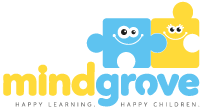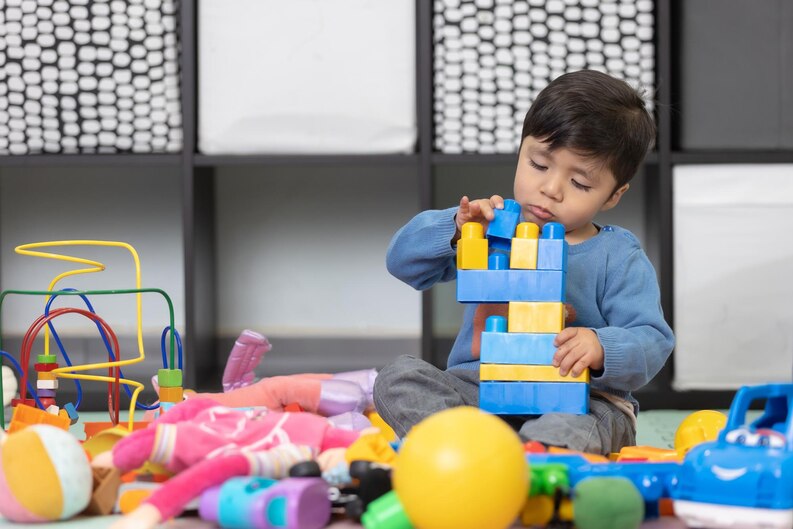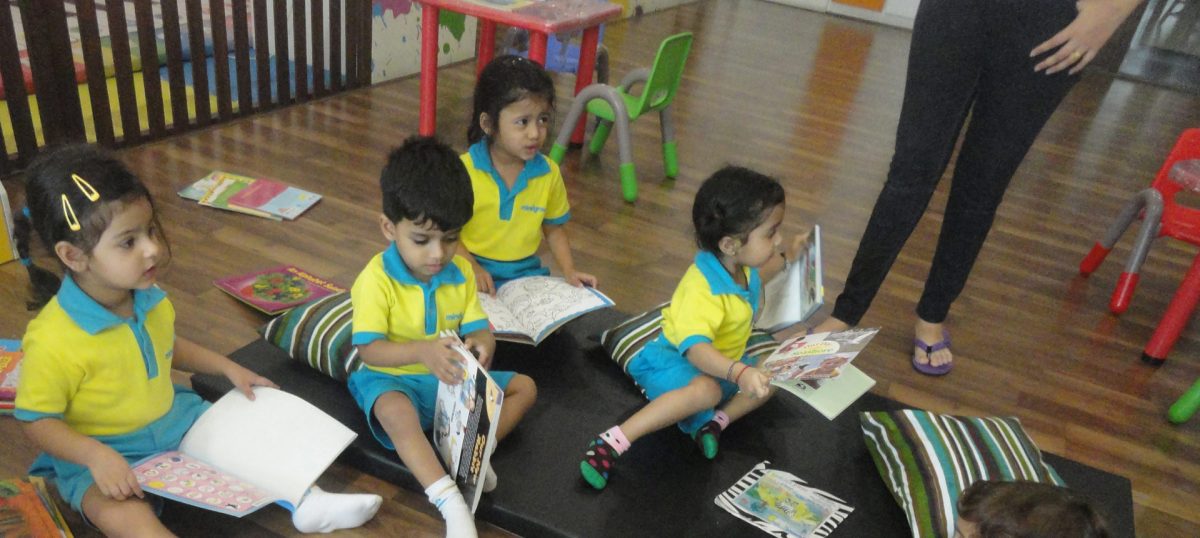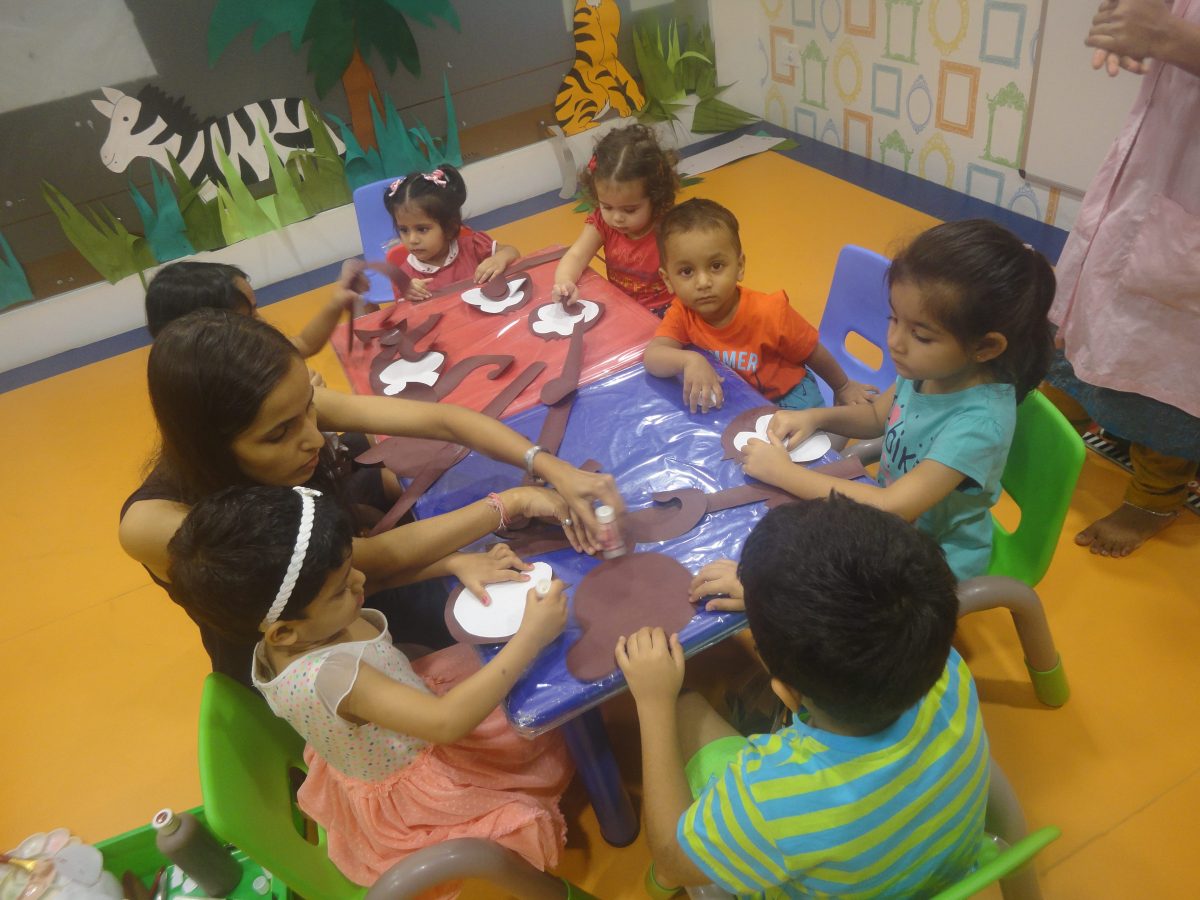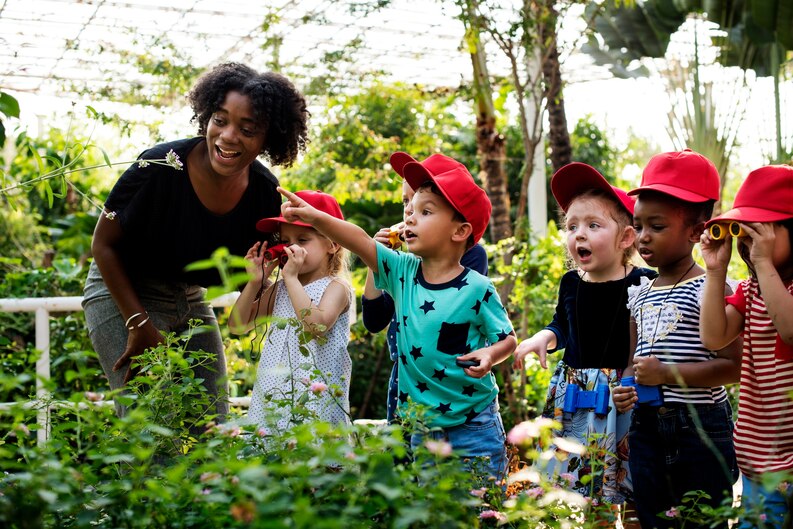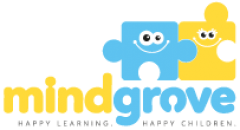test
Author: admin
Navigating the Preschool Maze: A Comprehensive Guide to Admission
Navigating the Preschool Maze: A Comprehensive Guide to Admission
Preschool admission can be a daunting process for both parents and their little ones. As the demand for quality early childhood education continues to rise, so does the competition for coveted spots in reputable preschools. In this blog post, we’ll delve into the intricacies of preschool admission, shedding light on aspects that are often overlooked. Along the way, we’ll incorporate relevant statistics from reputable sources to provide a well-rounded perspective.
-
The Growing Importance of Early Education
Preschool serves as a foundation for a child’s future academic success and social development. According to the National Institute for Early Education Research (NIEER), children who attend high-quality preschool programs demonstrate better cognitive and social skills compared to their peers who do not receive such education.
-
Uncovering Admission Criteria
While many parents focus on academic aspects, admission criteria can vary widely among preschools. Beyond academic readiness, factors such as socio-economic diversity, cultural inclusivity, and special needs accommodations may influence admission decisions. It’s crucial for parents to consider these factors when selecting a preschool for their child.
-
The Impact of Parental Involvement
Research indicates that parental involvement significantly contributes to a child’s academic success. However, not all preschools emphasize this aspect during the admission process. According to a study by the National Center for Education Statistics (NCES), preschools with strong parental involvement programs show higher levels of student achievement.
-
Understanding Diversity in Preschools
Diversity goes beyond race and ethnicity; it includes socio-economic status, family structure, and learning styles. A report by Child Trends reveals that exposure to diverse environments during preschool years positively influences a child’s ability to collaborate, problem-solve, and empathize.
-
Navigating the Financial Landscape
Preschool costs can vary significantly, and it’s essential for parents to explore financial aid options. Surprisingly, a study by the Institute of Education Sciences found that many families are unaware of available assistance programs, leading them to miss out on valuable opportunities.
Conclusion
Preschool admission is a multifaceted process that extends beyond academic readiness. Understanding the various criteria, the impact of parental involvement, the importance of diversity, and financial considerations are crucial for making informed decisions. By delving into these less-explored aspects, parents can navigate the preschool maze with greater confidence, ensuring the best possible start for their children’s educational journey.
7 Amazing Benefits of Preschool Education for Toddlers
7 Amazing Benefits of Preschool Education for Toddlers
Preschool education plays a crucial role in laying the foundation for a child’s future success. While many parents recognize the importance of early education, there are still some who may question its significance. In this blog post, we will delve into seven amazing benefits of preschool education for toddlers, backed by statistics from reputable sources.
Social Skills Development
Preschool serves as an early socialization platform, exposing toddlers to various social interactions. According to a study by the National Institute for Early Education Research (NIEER), children who attend preschool demonstrate improved social skills compared to those who do not. Preschool provides a structured environment for toddlers to learn how to share, cooperate, and communicate effectively with their peers.
Cognitive Development
The early years of a child’s life are crucial for cognitive development. The Perry Preschool Project, a renowned longitudinal study, found that children who attended high-quality preschool programs showed better cognitive abilities, including problem-solving and critical thinking skills. Preschool activities stimulate a child’s curiosity and foster a love for learning, laying the groundwork for academic success.
Emotional Regulation
Preschool provides a safe space for toddlers to explore and understand their emotions. The Center on the Developing Child at Harvard University reports that early childhood experiences, including those in preschool, significantly impact emotional regulation skills. Through activities and interactions, toddlers learn to manage their emotions, fostering emotional intelligence that will benefit them throughout their lives.
Language Development
The National Early Literacy Panel’s research underscores the positive impact of preschool on language development. Exposure to a rich language environment in preschool enhances vocabulary and language skills, preparing toddlers for a smoother transition into formal education. The benefits extend beyond language, positively influencing literacy and communication skills.
Cultural Awareness
Preschools often promote diversity and inclusion, exposing toddlers to various cultures and backgrounds. According to a report by Child Trends, early exposure to diversity contributes to the development of cultural awareness and empathy. Preschools create an environment where toddlers learn to appreciate differences, fostering a sense of belonging and respect for others.
Motor Skills Enhancement
Physical activities in preschool contribute to the development of fine and gross motor skills. The American Academy of Pediatrics emphasizes the importance of physical play in early childhood education. Preschool activities such as drawing, cutting, and outdoor play help toddlers refine their motor skills, supporting overall physical development.
Parental Involvement and Support
Preschools encourage parental involvement, creating a collaborative relationship between parents and educators. The U.S. Department of Education reports that parental involvement positively influences a child’s academic success. Preschools often organize events, workshops, and conferences that facilitate communication between parents and teachers, ensuring a holistic approach to a child’s development.
Conclusion
Investing in preschool education for toddlers is a wise decision with far-reaching benefits. The statistics and findings discussed above highlight the profound impact that preschool can have on a child’s social, cognitive, emotional, and physical development. As parents, educators, and society at large, it is crucial to recognize the pivotal role that preschool education plays in unlocking the full potential of our youngest learners.
Top 10 Brain Development Games for Preschoolers
Top 10 Brain Development Games for Preschoolers
Preschool is a critical period for cognitive development in children. As educators and parents, it’s essential to provide stimulating activities that not only entertain but also promote brain growth. In this blog post, we’ll explore the top 10 brain development games for preschoolers, backed by research and stats from reputable sources.
Pattern Recognition Puzzles
Enhancing a child’s ability to recognize patterns is crucial for early cognitive development. A study published in the “Journal of Cognition and Development” (Smith et al., 2018) emphasizes the positive impact of pattern recognition games on cognitive skills in preschoolers.
Building Blocks and Spatial Skills
Building blocks may seem like simple toys, but they play a significant role in developing spatial awareness and problem-solving skills. According to a report by the American Academy of Pediatrics (AAP), spatial skills developed during early childhood are linked to later success in science, technology, engineering, and mathematics (STEM) fields.
Memory Card Games
Memory card games, such as “Memory” or “Concentration,” are excellent tools for improving a child’s memory and concentration. The American Journal of Play published a study (Gopnik et al., 2019) that highlights the positive correlation between memory games and cognitive development in preschoolers.
Musical Instruments
Introducing musical instruments not only sparks creativity but also supports cognitive development. A study by the National Association of Music Merchants (NAMM) indicates that early exposure to music positively influences a child’s language and reasoning skills.
Sensory Play with Playdough
Engaging in sensory play with materials like playdough stimulates a child’s senses and fine motor skills. The Journal of Motor Learning and Development reports that sensory-rich activities contribute to the development of neural connections in the brain.
Interactive Storytelling Apps
In the digital age, carefully selected interactive storytelling apps can be powerful tools for cognitive development. A study by the Joan Ganz Cooney Center (Takeuchi et al., 2017) emphasizes the positive effects of interactive digital media on early literacy and language skills.
Outdoor Nature Scavenger Hunts
Outdoor activities not only promote physical health but also contribute to cognitive development. A survey by the National Wildlife Federation (NWF) found that exposure to nature enhances a child’s ability to focus and learn.
Balance Board Games
Balance board games, such as those that involve walking on a balance beam, help improve coordination and spatial awareness. The American Academy of Pediatrics (AAP) suggests that activities promoting balance contribute to the development of the cerebellum, a key area of the brain responsible for motor skills.
Educational Board Games
Board games like “The Game of Life” or “Candy Land” provide a fun way to enhance social, emotional, and cognitive skills. A report by the American Educational Research Association (AERA) indicates that educational board games contribute to improved academic performance.
DIY Science Experiments
Simple science experiments at home foster curiosity and critical thinking. The International Journal of Early Childhood Environmental Education underscores the positive impact of hands-on science activities on cognitive development.
Conclusion
While it’s essential to ensure that preschoolers have a balance of play and learning, incorporating brain development games into their routine can significantly impact their cognitive skills. By understanding the science behind these activities, we empower ourselves as educators and parents to make informed choices that will shape the future minds of our little ones.
The Ultimate Guide to Choosing the Perfect Playschool in Mumbai
The Ultimate Guide to Choosing the Perfect Playschool in Mumbai
Introduction: Navigating Mumbai’s Playschools
When it comes to laying the foundation of a child’s educational journey, choosing the right playschool becomes a paramount decision. In a city like Mumbai, where options abound, finding that perfect fit can be both exciting and overwhelming. We’re here to streamline this process, offering a comprehensive guide that amalgamates insights, considerations, and practical tips to aid parents in their quest for the ideal playschool.
Understanding the Landscape
Mumbai’s educational landscape boasts a diverse array of playschools, each with its unique philosophy, facilities, and teaching methodologies. From Montessori to Reggio Emilia, Waldorf to Playway – the choices are extensive.
Defining Your Priorities
Before diving into the selection process, it’s crucial to outline your priorities. Are you inclined towards a specific teaching approach? Do you seek a playschool closer to your residence or workplace? Understanding your non-negotiables will significantly narrow down the options.
Factors to Consider
Location Matters
Proximity often plays a pivotal role. Opting for a playschool that’s easily accessible can alleviate logistical challenges and ensure a smoother daily routine for both parents and children.
Curriculum and Pedagogy
Each playschool follows a distinctive educational philosophy. Delve into their curriculum, teaching methodologies, and extracurricular activities to align them with your child’s learning style and interests.
Infrastructure and Facilities
A conducive environment is imperative for a child’s holistic development. Assess the infrastructure, safety measures, play areas, and amenities offered by the playschool.
Staff Expertise and Ratio
Qualified and compassionate staff are the backbone of any playschool. Consider the teacher-to-student ratio and the experience/expertise of educators in nurturing young minds.
Parental Involvement
Some playschools encourage active parental involvement through regular updates, workshops, or volunteering opportunities. Determine the level of engagement the playschool offers to parents.
Conclusion: Nurturing Futures
Choosing the perfect playschool in Mumbai is an investment in your child’s future. By considering factors like location, curriculum, facilities, staff expertise, and parental involvement, you’re not just selecting a playschool but setting the stage for a vibrant educational journey.
Qualities to Consider When Choosing a Preschool or Nursery
Qualities to Consider When Choosing a Preschool or Nursery
Selecting the right preschool or nursery for your child is a significant decision that can greatly impact their early development. Understanding the key qualities to look for in these educational settings is essential for parents. Here are some vital aspects to consider:
1. Safety Measures:
Safety should be a top priority. A good preschool or nursery should have stringent safety protocols, secure entry systems, and a safe play area.
2. Qualified Staff:
The staff’s qualifications and experience matter. Teachers should possess early childhood education credentials and exhibit a genuine passion for nurturing young minds.
3. Learning Environment:
An environment that stimulates learning through play and exploration is crucial. Look for spaces designed to encourage curiosity and creativity.
4. Healthy Meals and Snacks:
Nutrition plays a vital role in a child’s development. Ensure the institution provides well-balanced meals and snacks to support their growth.
5. Parental Involvement:
A preschool that values parental involvement fosters a stronger bond between home and school. Look for places that encourage family participation.
6. Structured Routine:
Children thrive in structured environments. A consistent routine involving play, learning activities, and rest times is beneficial for their development.
7. Social and Emotional Development:
A good preschool helps children build social skills and emotional resilience. Programs that focus on empathy, communication, and conflict resolution are invaluable.
8. Positive Reviews and Reputation:
Seek feedback from other parents and explore online reviews to gauge the institution’s reputation and the experiences of other families.
9. Inclusivity and Diversity:
A diverse and inclusive environment promotes acceptance and understanding. Look for preschools that celebrate various cultures and embrace diversity.
10. Curriculum and Learning Approach:
Understanding the curriculum and learning approach is crucial. Some preschools follow specific educational philosophies; choose one that aligns with your beliefs and goals for your child’s education.
Choosing the right preschool or nursery involves considering these aspects to ensure your child’s early learning experiences are enriching, safe, and conducive to their overall growth and development.
When to Start Preschool: Finding the Optimal Age for Admission
When to Start Preschool: Finding the Optimal Age for Admission
Preschool plays a pivotal role in a child’s development, laying the foundation for their educational journey. Parents often grapple with the decision of when to enroll their child in preschool, seeking the optimal age for admission that fosters holistic growth. In this comprehensive guide, we delve into the intricacies of determining the right time to start preschool, considering various developmental factors and societal norms.
Understanding the Importance of Preschool Education
The Significance of Early Learning
Early childhood education significantly impacts cognitive, social, and emotional development. Research indicates that quality preschool experiences enhance children’s readiness for formal schooling.
Developmental Milestones and Readiness for Preschool
Each child progresses uniquely, hitting developmental milestones at different times. Factors such as language skills, social interactions, and independence are pivotal in determining readiness for preschool.
Socialization and Interaction in Preschool
Social skills blossom in preschool settings, aiding in developing friendships, empathy, and collaboration. The social aspect is crucial in determining when a child is ready to thrive in a group environment.
Academic Preparedness and Cognitive Growth
The cognitive benefits of preschool encompass language development, problem-solving skills, and fostering a love for learning, emphasizing the importance of timely enrollment.
Factors Influencing the Optimal Preschool Age
Psychological Readiness and Emotional Maturity
Emotional readiness is key. Children should exhibit a level of emotional maturity to navigate separations from caregivers and adapt to a structured environment.
Individual Learning Styles and Preferences
Understanding a child’s learning style aids in determining the optimal age for preschool. Some children thrive in a structured setting, while others might benefit from a bit more time at home.
Cultural and Societal Norms Impacting Enrollment Age
Cultural beliefs and societal norms influence the age at which parents enroll their children in preschool. Some cultures prioritize early academic exposure, while others emphasize a more relaxed approach.
Conclusion
In the pursuit of determining the optimal age for preschool admission, it’s vital to consider the individual child’s readiness, developmental milestones, and cultural influences. There’s no one-size-fits-all approach. Instead, a holistic evaluation considering emotional, social, and cognitive aspects helps parents make an informed decision.
Unlocking The Power of 10 Social Skills Learned in Preschool
Unlocking The Power of 10 Social Skills Learned in Preschool
When we reminisce about our early years, images of finger painting, sharing toys, and making new friends at preschool often come to mind. It’s a time when we were introduced to the fundamental building blocks of human interaction and social skills. Little did we know then that these seemingly simple lessons would become invaluable assets in our personal and professional lives. In this article, we will explore the 10 social skills learned in preschool and how they continue to play a pivotal role in our journey through life.
1. Sharing: A Lesson in Cooperation
One of the first lessons we learn in preschool is sharing. Sharing is not only about dividing toys but also about collaborating and understanding the joy of giving. In adulthood, this skill manifests as collaboration and teamwork, which are integral in the workplace. Sharing ideas, responsibilities, and successes fosters a harmonious and productive environment.
2. Empathy: Understanding Others
Preschool teaches us to recognize and understand the feelings of others. This skill, known as empathy, remains crucial in adulthood. Empathetic individuals build stronger personal relationships and excel in fields that require understanding and compassion, such as counseling and healthcare.
3. Communication: The Art of Expression
Effective communication is key, whether you’re four or forty. Preschool introduces us to the basics of speaking and listening. In adult life, these skills evolve into effective public speaking, active listening, and strong writing capabilities, which are essential for personal and professional success.
4. Patience: A Virtue of Value
In preschool, we learn the art of waiting our turn. Patience is a virtue that becomes vital as we grow older. It helps us persevere through challenges, manage stress, and make thoughtful decisions, ultimately leading to success in various aspects of life.
5. Conflict Resolution: Navigating Differences
Preschool disputes over crayons or playtime may seem inconsequential, but they teach us the foundations of conflict resolution. As adults, these skills assist us in managing disagreements and negotiating compromises, making them valuable in both personal relationships and professional settings.
6. Independence: Self-Reliance
Preschool encourages independence by allowing children to explore and make choices. This independence matures into self-reliance, enabling individuals to make sound decisions and take responsibility for their actions in adulthood.
7. Respect: The Golden Rule
In preschool, we learn the importance of treating others as we wish to be treated. This principle, known as the Golden Rule, is a cornerstone of social ethics. Respecting others’ feelings, opinions, and boundaries is an essential skill that paves the way for harmonious personal and professional relationships.
8. Curiosity: The Drive for Knowledge
Preschoolers are known for their unbridled curiosity. This innate quality transforms into a lifelong love for learning, pushing us to seek knowledge, ask questions, and adapt to an ever-changing world.
9. Adaptability: Embracing Change
Preschool teaches us to adapt to new routines, teachers, and environments. This skill evolves into adaptability, a trait highly sought after in the workplace. Those who can embrace change and innovation are better positioned for success in an evolving world.
10. Resilience: Bouncing Back
Preschoolers often face challenges, from learning to tie their shoes to overcoming fears. This early exposure to adversity fosters resilience, a trait that empowers individuals to bounce back from setbacks and continue pursuing their goals.
In conclusion, the social skills learned in preschool are not just child’s play; they are the building blocks of a successful and fulfilling life. These skills, from sharing and empathy to adaptability and resilience, continue to influence our personal and professional development. By recognizing their significance and nurturing them throughout life, we can unlock the power of these 10 social skills, ensuring a brighter and more prosperous future.
Outdoor Sensory Play for Preschoolers: Exploring Nature’s Classroom
Outdoor Sensory Play for Preschoolers: Exploring Nature’s Classroom
In today’s fast-paced digital age, it’s crucial to provide young children with opportunities to connect with the natural world. Outdoor sensory play for preschoolers is more than just fun and games; it’s an essential aspect of their development. This article delves into the enchanting realm of outdoor sensory play, offering creative ideas and insights for parents and educators.
The Magic of Outdoor Sensory Play
Outdoor sensory play is a gateway to a world of wonder for preschoolers. It stimulates their senses, fosters curiosity, and nurtures a deep connection to the environment. The benefits are manifold:
1. Boosting Cognitive Skills
Engaging in outdoor sensory activities helps children develop problem-solving skills. They learn to observe, hypothesize, and experiment as they explore the natural world.
2. Enhancing Physical Development
Running, jumping, digging, and climbing are integral parts of outdoor play. These activities promote motor skills and physical fitness.
3. Igniting Creativity
Nature is the perfect canvas for artistic expression. Outdoor play encourages children to paint, sculpt, and create with natural materials, fostering creativity and imagination.
4. Social and Emotional Growth
Playing outdoors with peers teaches preschoolers valuable social skills such as cooperation, communication, and empathy. It also provides opportunities for emotional expression and self-discovery.
Exploring the Possibilities
Sensory Garden
Create a sensory garden by planting various textures, colors, and fragrant flowers. Allow children to touch, smell, and describe the sensory experience.
Nature Scavenger Hunt
Organize a scavenger hunt with a list of items found in the natural environment, such as leaves, pinecones, or specific types of flowers. This activity encourages observation and attention to detail.
Mud Kitchen
A mud kitchen is a fantastic way for children to get their hands dirty, quite literally. Provide pots, pans, and utensils, and watch them cook up imaginary delicacies in the mud.
Water Play
Water play is both refreshing and sensory-rich. Set up a small pool, buckets, and watering cans for children to splash and experiment with.
Outdoor Art Gallery
Hang a clothesline where children can display their nature-inspired artwork. This gives them a sense of pride and showcases their creativity.
Perplexity and Burstiness in Action
At this point, you might be wondering how to manage outdoor sensory play’s perplexity and burstiness while maintaining a specific context. The key is to offer diverse activities that engage all the senses while keeping the overarching theme intact – a deep connection with nature.
We encourage you to embrace these activities while adapting them to your unique setting. Remember, the heart of outdoor sensory play is to foster a love for nature and curiosity about the world around us.
Conclusion
Outdoor sensory play for preschoolers is a treasure trove of learning, fun, and growth. It’s a way for children to build a lifelong bond with the environment and develop vital life skills. By offering them the opportunity to explore, create, and connect, we pave the way for a brighter, more sustainable future.
Developing Fine Motor Skills: Fun and Educational Activities for Preschool
Developing Fine Motor Skills: Fun and Educational Activities for Preschool
Fine motor skills play a vital role in a child’s overall development. These skills encompass the coordination of small muscle groups in the hands and fingers, and they are crucial for everyday tasks like writing, tying shoelaces, using utensils, and more. Preschool-age children are at a prime stage to develop these skills, and as a concerned parent or teacher, you may be wondering how to best nurture this aspect of their growth. In this comprehensive guide, we’ll explore a variety of engaging activities that are not only fun but also highly educational. These activities are designed to enhance fine motor skills and ensure your child is well-prepared for their journey through school and beyond.
The Importance of Fine Motor Skills
Fine motor skills are fundamental to a child’s development. They are closely linked to cognitive and academic abilities, affecting a child’s capacity to learn, create, and explore. Here’s why these skills are so crucial:
1. Preparation for Writing
Fine motor skills provide the foundation for writing. The ability to hold a pencil or crayon and make controlled, precise movements is essential for creating legible letters and numbers. As children master these skills, they become more confident and proficient writers.
2. Independence in Everyday Tasks
Developing fine motor skills allows children to become more independent. They can dress themselves, button shirts, zip up their pants, and tie shoelaces. These skills contribute to their self-esteem and confidence in handling daily tasks.
3. Cognitive Development
Fine motor skills development involves problem-solving and spatial awareness, contributing to cognitive growth. As children manipulate small objects and complete intricate tasks, they exercise their brains and improve their problem-solving abilities.
4. Social Interaction
Many fine motor activities can be done in groups, fostering social interaction, cooperation, and communication. These skills are invaluable for building friendships and working effectively in a team.
Fun and Educational Activities to Enhance Fine Motor Skills
Now that we understand the importance of fine motor skills, let’s explore a range of activities that can help your preschooler develop these skills while having a blast:
1. Playdough Creations
Playdough is a versatile tool for fine motor skill development. Your child can roll it, shape it, and squeeze it to create various objects. Encourage them to craft animals, vehicles, or even their favorite foods. This activity not only improves hand strength but also sparks creativity.
2. Cutting and Pasting
Get your child involved in simple cutting and pasting projects. Use child-safe scissors, and provide them with magazines or newspapers to cut out pictures and paste them on paper. This exercise hones their hand-eye coordination and scissor control.
3. Beading and Jewelry Making
Stringing beads onto a string to create jewelry is an excellent way to enhance fine motor skills. Your child can sort beads by color, size, or shape, promoting sorting and pattern recognition as well. This activity encourages focus and patience.
4. Finger Painting
Finger painting is a messy, colorful, and enjoyable activity. It not only fosters creativity but also enhances hand and finger dexterity. Encourage your child to paint pictures or simply explore with colors on paper.
5. Building with Building Blocks
Playing with building blocks helps improve hand-eye coordination, spatial awareness, and problem-solving skills. Your child can construct towers, houses, or even intricate structures. This activity is not only entertaining but also an excellent educational tool.
6. Threading Activities
Threading activities, such as lacing cards or sewing with blunt needles and yarn, improve hand-eye coordination and concentration. These activities are not only educational but also a great way to introduce your child to basic sewing skills.
Conclusion
Fine motor skills are an integral part of a child’s development, and as a parent or educator, you have the power to nurture these skills through engaging and educational activities. The activities mentioned in this guide are designed to make learning fun and help your child develop the fine motor skills they need to excel academically and in everyday life.
